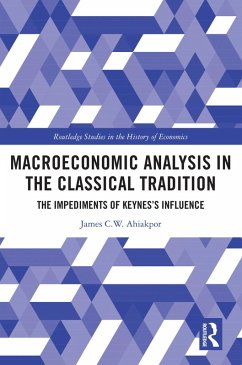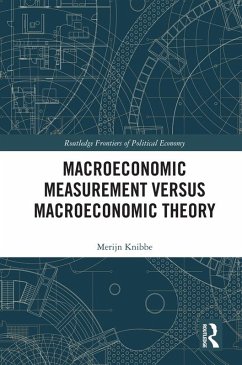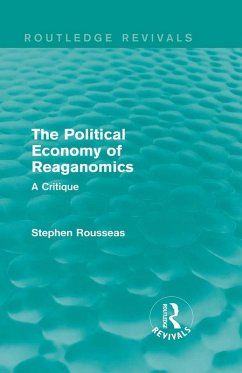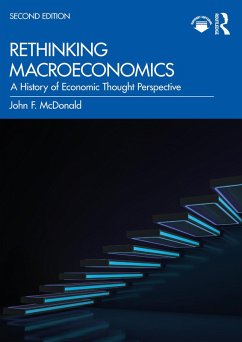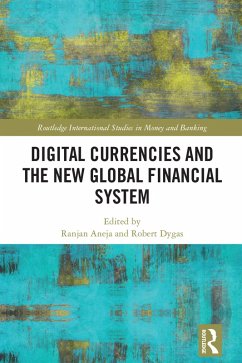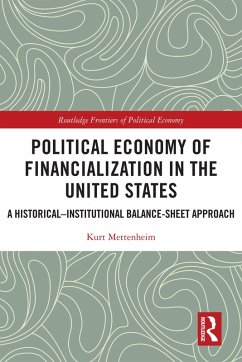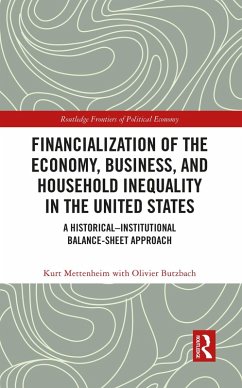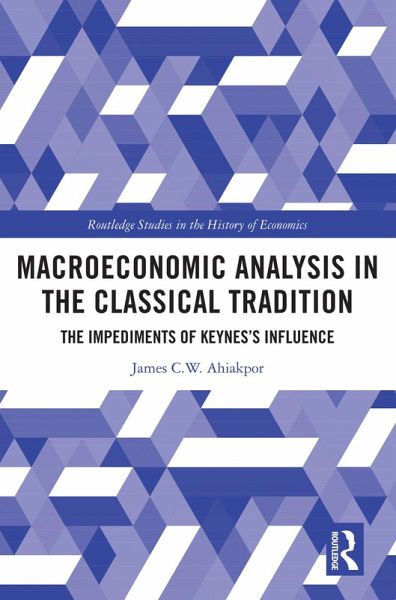
Macroeconomic Analysis in the Classical Tradition (eBook, PDF)
The Impediments Of Keynes's Influence
Versandkostenfrei!
Sofort per Download lieferbar
40,95 €
inkl. MwSt.
Weitere Ausgaben:

PAYBACK Punkte
20 °P sammeln!
Macroeconomic Analysis in the Classical Tradition explains how the influence of Keynes's macroeconomics, including his changed definitions of some key macroeconomic concepts, has impeded many analysts' ability to readily resolve disputes in modern macroeconomics.Expanding on his earlier work-Macroeconomics without the Errors of Keynes (2019)-the author delves into more aspects of macroeconomic theory and argues for a revision of Keynes's contribution to the field. Attention is given to theories and concepts such as Say's Law, the quantity theory of money, the liquidity trap, the permanent inco...
Macroeconomic Analysis in the Classical Tradition explains how the influence of Keynes's macroeconomics, including his changed definitions of some key macroeconomic concepts, has impeded many analysts' ability to readily resolve disputes in modern macroeconomics.
Expanding on his earlier work-Macroeconomics without the Errors of Keynes (2019)-the author delves into more aspects of macroeconomic theory and argues for a revision of Keynes's contribution to the field. Attention is given to theories and concepts such as Say's Law, the quantity theory of money, the liquidity trap, the permanent income hypothesis, 100% money, and the Phillips curve analysis. The chapters work to build a careful critique of Keynes's economics and make the case that the classical macroeconomics of Smith, Say, Ricardo, Mill, and others could help resolve present-day policy disagreements and redefine macroeconomic priorities.
This book provides essential reading for advanced students and scholars with an interest in the foundations of Keynes's theories and current debates within macroeconomic policy.
Expanding on his earlier work-Macroeconomics without the Errors of Keynes (2019)-the author delves into more aspects of macroeconomic theory and argues for a revision of Keynes's contribution to the field. Attention is given to theories and concepts such as Say's Law, the quantity theory of money, the liquidity trap, the permanent income hypothesis, 100% money, and the Phillips curve analysis. The chapters work to build a careful critique of Keynes's economics and make the case that the classical macroeconomics of Smith, Say, Ricardo, Mill, and others could help resolve present-day policy disagreements and redefine macroeconomic priorities.
This book provides essential reading for advanced students and scholars with an interest in the foundations of Keynes's theories and current debates within macroeconomic policy.
Dieser Download kann aus rechtlichen Gründen nur mit Rechnungsadresse in A, B, BG, CY, CZ, D, DK, EW, E, FIN, F, GR, HR, H, IRL, I, LT, L, LR, M, NL, PL, P, R, S, SLO, SK ausgeliefert werden.




